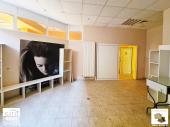Website # 1 for rental properties in Veliko Tarnovo. Residential, Holiday & Commercial properties to rent.
Feb 06, 2026 23:18
| Newsletters Sign-up | |||||||||||
|
|||||||||||
| How Bulgarians Celebrate Easter | ||
 Bulgaria is a largely Orthodox Christian country, along with much of the Balkans. Religious devotions figure prominently in the Easter holiday, and during Holy Week, some devout Bulgarians attend church every day.
Bulgaria is a largely Orthodox Christian country, along with much of the Balkans. Religious devotions figure prominently in the Easter holiday, and during Holy Week, some devout Bulgarians attend church every day.Easter Food Traditions In Bulgarian Orthodox Church tradition, the Lenten fast begins on Zagovezni, the Sunday six weeks before Easter. For the 46 days of Lent, church members abstain from all animal and fish products and byproducts, including butter, cheese, milk and caviar. While not a morsel is eaten before Easter Sunday, yeast-raised cakes and buns in animal shapes and cookie rabbits and flowers are baked during Holy Week. The most important ritual bread is the braided kozunak. On Easter Sunday, after 46 days of fast and abstinence, a feast of all the prohibited food is spread on the table, with the kozunak, symbolizing the body of Christ, taking center stage. Lamb, representing the Paschal Lamb, is always served. Palm Sunday Begins Holy Week Palm Sunday is known as Tsvetnitsa or Vrubnitsa (Flower Day), and the faithful are given a dispensation and allowed to eat fish. Since palms aren't readily available, pussy willows are taken to the church to be blessed. The branches are often fashioned into crowns by young girls and worn to church until they are thrown in a river—hopefully, to be caught by their future husbands on the other side. Many people named after flowers or plants, including those with names like Violeta, Roza and Lillia, celebrate their name day on Palm Sunday, and others called Velichka, Velina, Velika and Veichko have their name day on Easter day. Holy or Maundy Thursday Easter eggs are dyed on Maundy (Holy) Thursday or Holy Saturday. The first red egg dyed on Holy Thursday is a symbol of health and good fortune for the family and is set aside to be kept until next Easter. Good Friday Good Friday is the anniversary of the Crucifixion and the day when a table is set up in churches representing Christ's coffin. The faithful climb underneath in the hopes of having a year full of health and fertility. Holy Saturday Holy Saturday services begin at 11 p.m. Families and friends attend church together, carrying their colored eggs with them. When the clock strikes midnight, they greet each other with the words Hristos vozkrese (Christ has risen). The response is Voistina vozkrese (Indeed, He has risen). The priest and the faithful then walk around the church three times with lit candles in hand. The belief is that the candle of anyone who has been a good Christian will not go out no matter how strong the wind blows. After services are over, the all-important "egg fight" or choukane s yaitsa takes place. Opponents smash their eggs into each other. The person with the egg left unbroken is proclaimed the winner, or borak. The winning egg is kept until next Easter and is a sign of good luck. Superstitions It is believed if someone hears a cuckoo midway during Lent, spring is coming. Likewise, if that person has money in his pocket at the sound of the cuckoo, he will be rich in the coming year, but if he has no money or is hungry, then that is likely how the rest of the year will play out. |
||
| Source: www.thespruce.com | ||
| Wednesday, Mar 28, 2018 | ||
|
| » 3 HOT OFFERS | ||||||||||||
|
||||||||||||

